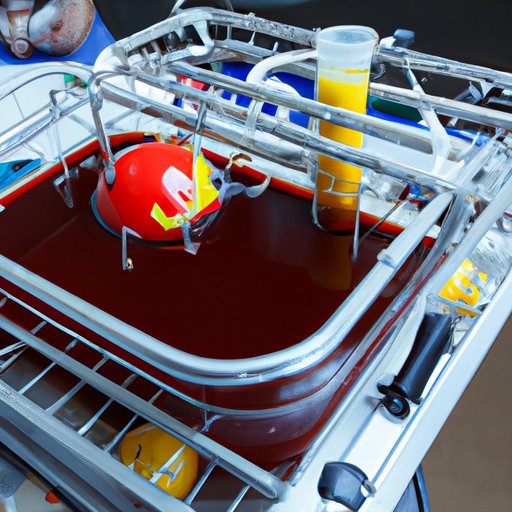Introduction
Donating your body to medical science is an act of selflessness that can help further medical research and education while providing invaluable benefits to people in need. When you donate your body, it is typically used by medical schools and research facilities for educational and research purposes. These donations are often used to teach medical students and to develop new treatments or cures for diseases.
Research the Laws and Regulations in Your Area
Before considering body donation, it’s important to understand the laws and regulations related to this type of donation in your area. Each state has its own laws regarding body donation, so it’s important to familiarize yourself with the regulations in your state before proceeding. Additionally, many medical schools and research facilities have their own policies related to body donation. It’s important to ensure that you understand these policies before you make a decision.
Contact a Medical School or Research Facility
Once you’ve researched the laws and policies in your area, the next step is to find a reputable medical school or research facility to donate your body to. There are several ways to do this, including searching online for organizations in your area. You can also contact the American Association of Tissue Banks (AATB) to find out which organizations near you accept body donations.
When you contact a medical school or research facility, it’s important to ask questions about their policies and procedures related to body donation. Some important questions to ask include: What types of bodies do they accept? How long will the body be used for research or medical education? What happens to the body after it is donated?

Ask About the Donation Process
When you’ve found a reputable medical school or research facility to donate your body to, it’s important to understand the steps involved in the donation process. Ask about the forms you need to fill out and how to go about filling them out. Also, ask about any costs associated with the donation process and how you can cover those costs.

Fill Out the Necessary Forms
Most medical schools and research facilities require that you fill out a variety of forms in order to donate your body. These forms typically include a donor agreement form, a consent form, and a medical history form. You may also need to provide proof of identity, such as a driver’s license or birth certificate. Be sure to ask about any other forms you may need to fill out before donating your body.
Make Sure Your Family is Aware of Your Decision
It’s important to make sure that your family is aware of your decision to donate your body to medical science. This will ensure that they are not taken by surprise when you pass away and that they understand why your body was donated. Additionally, it will give them peace of mind knowing that your body was used to benefit others.
Consider Making Financial Arrangements
Although body donation is typically free, there may be some expenses associated with the donation process. Therefore, it’s important to consider making financial arrangements to cover any costs associated with the donation. For example, you may want to set aside money to cover transportation and storage fees or to pay for a memorial service.

Take Care of Yourself Before You Pass Away
Finally, it’s important to take care of yourself before you pass away in order to ensure that your body is in the best possible condition for medical research and education. Make sure to stay up-to-date on all of your medical appointments and follow your doctor’s advice. Eating healthy, exercising regularly, and avoiding smoking and excessive alcohol consumption are also important steps to take.
Conclusion
Donating your body to medical science is a generous act that can help advance medical research and education, as well as save lives. It’s important to do your research and contact a reputable organization before making a decision. Make sure your family is aware of your decision and consider making financial arrangements to cover any associated costs. Finally, take care of yourself before you pass away to ensure that your body is in good condition for donation.
(Note: Is this article not meeting your expectations? Do you have knowledge or insights to share? Unlock new opportunities and expand your reach by joining our authors team. Click Registration to join us and share your expertise with our readers.)
